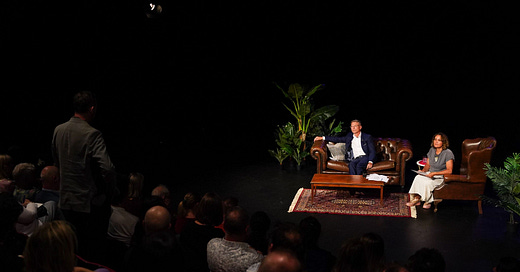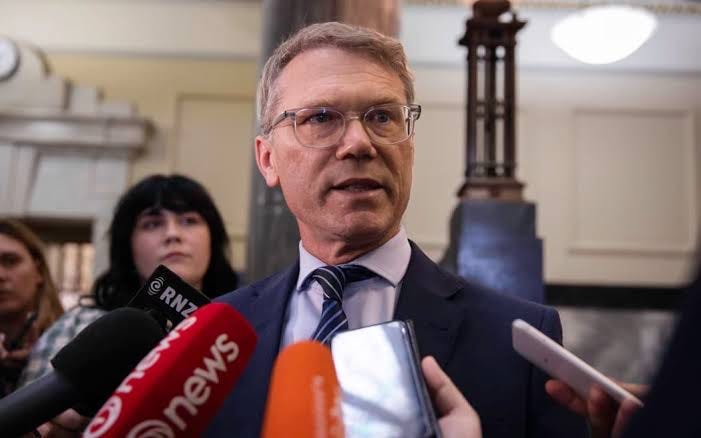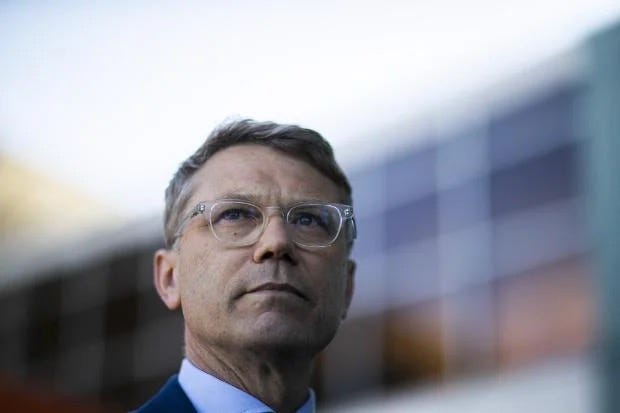Where’s the Gold, Goldsmith? Arts Community Criticises the Government’s Artless Direction
Minister of Arts faces the music for cutting of Creatives in Schools
Paul Goldsmith was introduced to an Arts Sector eager for his input (especially input of the sort this government are pulling back from) as someone who wanted to spread a lot of rain and let the flowers grow without much top down influence from the clouds, or something else that basically translated to “not much money coming from us”.
But at least there was a promise of a little rain, and that was hopefully a good thing. Compared to the introduction we got to Todd Stephenson, his ACT counterpart who “once watched a musical”, his ability to use a metaphor should have been at least a little reassuring.
That tentative goodwill, it seems, has vanished entirely with this governments revelation of how irrelevant they consider the arts. In a meeting with creatives in Wellington on Wednesday, Goldsmith faced some strikingly critical questions from a sector concerned about the lack of investment being put into its continued future. His initial attempts to pin criticism on “mischievous journalists” was met with the call to stop “blaming the media for looking into policies that are causing distress to a vast number of people in this country”.
They were not won over by his lies — sorry, his misunderstanding — about the reasons why Creatives in Schools was cut, attributing this to coming from temporary funding during COVID — Goldsmith stated that his officials advised him the programme was part of the COVID funding which "was not economically sustainable.” Dr Kerryn Palmer - an outspoken critic of the lack of creativity in New Zealand schools in recent times was also in attendance and retorted that the programme started in 2019, prior to the COVID funding, before expressing frustration at CiS being cut without consultation with the creative sector.
New Zealand “can’t wait until literacy and numeracy is at 99%" before focussing on creative pathways for the youth of Aotearoa,” said another audience member.
This is despite Goldsmith’s early promises from his pitch for an arts sector strategy that have remained unmet:
Finally, any strategy worth its salt will consider how we generate and sustain a pipeline of talent. It starts with an education system that exposes all Kiwi kids to a wide range of arts and creativity, and inspires them. Māori and Pacific traditions are essential, as is Shakespeare. Skills training at the tertiary level can also include a measure of business guidance. And in our funding we need to carefully consider the balance between encouraging emerging talent, providing opportunities for mid-career professionals, recognising excellence, and supporting our key institutions that provide opportunities for the sector.
Perhaps we should have listened closer. English and kapa-haka are essential, but only because they’re run in-school already.
Goldsmith was pretty keen to promote where the money was going, but this may have fallen on deaf ears.
"We invest nearly half a billion dollars in the broader sector - a lot of it is subsiding films but many investments are made across the sector. The reality is in this year's budget and next year, there’s not huge amounts of fresh money available - there will be hopefully down the line once we get the budget back in order.
"Over the last six years, (NZ) borrowed an extra $100 billion dollars and we’ve got not much to show for it but a lot of debt to pay down, we’ve got a big deficit, we’ve got massive challenges fiscally. We, in the current budget, managed to hold our ground reasonably well against a strong tide but we’re not in a period where we have large amounts of money floating around.
"So we need to think very carefully about how we use the resource that we’ve currently got. I think we need to be purposeful, that when it’s Government money being invested, it is purposely leveraging philanthropy, local government investment, corporate investment and of course engagement with audiences as they pay.
"That’s a mindset that’s going to be very important in all the funding that we do.
"Certainly, when we’re doing trade missions around the world, we’re selling milk, we’re selling meat, we’re also selling our film industry, we’re selling our ideas, our creative sector. I think we need to make that part of our export story and really talk that up."
He then tried to promote how the government would help creatives by “cutting regulation on small businesses” while failing to properly address how with the other, much stronger hand they’ll be cutting creatives’ incomes and squirming away from the government’s responsibility to help grow it away from a measly median of $31,000, less than half the national average.
While Goldsmith perhaps feels he got “not much to show” for the many billion dollars of COVID funding that kept our country open, our people alive and with incomes, our hospitals not sinking under the weight of the ill, and crucially, our creative industries well-funded, those said creative industries instead seem to feel that right now they’re getting not much to show out of this government.
It’s either entirely deranged or just another lie to suggest the creative industry should expect more input from local councils after this government has shafted them financially with Maori wards, Three Waters and total lack of infrastructure support promised to fix the national crisis that is being foisted upon their shoulders. Councils are clearly stretched and are committing to arts through continued investment in line with how the government is distributing their funding: for example, Christchurch City Council re-committing to the ScreenCanterbury initiative but not the historic Arts Center, Nelson City Council continuing investment in its Arts and Creative Strategy and preserving the Nelson Museum but needing half the funding to come from other sources. Local government are following the same strategies as National government are and are forcing creatives and their own institutions to compete in a shrinking funding space.
Goldsmith also forgets, or fails to address, that by focusing on what’s “very successful”, he is cutting off pathways for future talent to reach that level of success.
Except for in our mental health spaces, addiction spaces, rehabilitative spaces, etc, apparently, where he claims he is actively campaigning to see more funding go towards creatives, presumably for delivering programmes. Which unfortunately just makes me, as someone in those systems, wonder: Oh god, what are they going to cut to make that happen?







This dude, huh, sapphi?
https://mountaintui.substack.com/p/the-man-who-wants-te-reo-maori-gone
Definitely dodgier than I thought. I remember seeing him when he became Arts Minister and he was talking about how passionate he was for the arts!
Turns out he's just another phoney who venerates Atlas Network and Hobsons Pledge. Disappointing government all round. Gone are the days when I will write posts saying "I feel sorry for Chris Luxon"!
It's exhausting isn't it? Calling out the lies & bad faith behaviour of this crop of elected officials I mean - perhaps that is their strategy, but if we've learned anything from the former US/wannabe-next President, it is vital to call out the lies as soon as they happen. Kudos to those who are doing the work, and thanks for doing your bit 👏🏾